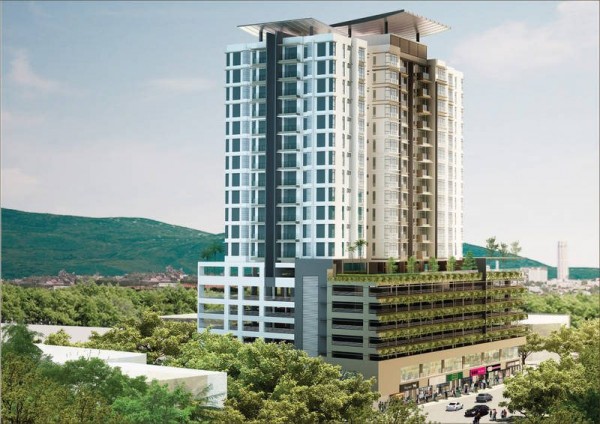DURING the major festivals in this country, we see the authorities conduct vigorous enforcement activities on various price-controlled food items. This is to prevent unscrupulous traders from exploiting the situation by increasing prices of what are deemed as essentials. Sometimes they even secretly stock up such items to create artificial shortages. It is outright profiteering.
We often read about wayward traders being taken to court simply for failure to display prices. Whether such measures breach our free market policy may be open for debate. The bottom line is that it does curb profiteering to a certain extent. Having said that, we would now like to refer to the present scenario in the housing arena.
Affordable housing is now the buzzword. There is no denying that the price of suitable housing has reached a crisis level, beyond the affordability of the average wage earners. This is a highly undesirable situation and, if left unchecked, it can lead to adverse and far-reaching problems. We will end up with a whole generation who will be tenants, subjecting themselves to the whims and fancies of landlords, or who have to commit a vast proportion of their household incomes to service house mortgages.
Bear in mind that the Malaysian household income to debt ratio is among the highest in the world and that the bulk of these debt is incurred in the servicing of house mortgages.
Those who are tenants face the uncertainties of landlords either increasing their rentals or even evicting them. The mortgage group faces a delicate and risky situation where they may get into financial trouble if events do not turn out well. These include the raising of interest rates by financial institutions, any downward trend of property prices, drops in their incomes or the cropping up of other emergencies.
Yes, house prices will go up given any period of time due to natural inflationary forces. This is probably beyond the control of any party. But the recent spate of price escalation is certainly not due to natural forces, the cost of building materials or construction costs, much as industry players would like to make us believe. In the case of land cost, it is a chicken and egg situation.
If house prices have been pushed up (either speculatively or naturally), it goes without saying that land owners would expect higher prices for their land. It is also not due to shortfall of supply over demand as National Property Information Centre (Napic) figures show otherwise.
Rather, it is due to unbridled speculative forces.
On the real property gains tax (RPGT) in Budget 2013, it is unfortunate that our Prime Minister has been ill-advised on the true situation. The rakyat can expect to see an increase in speculative property investments which will in turn further drive up the prices.
Typically, if the property is purchased directly from the developer, it takes 2 years (for landed properties) and 3 years (for strata properties) to be completed. During these construction stages, house buyers are not allowed to sell their properties without the consent of the developer and can only sell the properties after they have been completed.
What the revised RPGT means in lay-man terms is that speculators can purchase properties from property developers upon launch and then flip these properties on after 2 years and having to pay only the proposed 10% (i.e. within the 3rd to the 5th year). After the 5th year, all profits are not taxable. With additional attractive financing packages, very often these speculators just need to pay the 10% downpayment and walk away with a lucrative gain at the end of the construction period.
Stronger and more positive governmental intervention is critically required. We are not suggesting that houses should be subjected to price control like other commodities. But we would like the Government to put in measures to discourage speculation. Alter the landscape to make it less encouraging and less worthwhile for speculation to take place.
We have heard housing developers claim credit for having built X-million number of houses and having created immense wealth when the houses appreciate in value. We also see large numbers of speculators who reap immense profits by just buying/booking and flipping over their purchases and reaping enormous profits. While industry players have cited a host of other causes not all are justified. In any event, the escalation of house prices is good for them as it encourages quick sales brought about by an artificial shortage. On the humanitarian side, there is nothing to feel good about.
Speculative profits are not real profits. Speculators are, in effect, taking money from our future generations to enjoy today. Our future generations and under the prevailing circumstances, even the present generation as well will suffer the effects of exorbitant house prices that have resulted in the high household income to debt ratio. This may be legal but it is downright immoral!
The country’s economy will be an unbalanced one because with such a large proportion of family income committed to house mortgages, a typical household will be compelled to be stingy on other expenditures. Thus, the other industries will suffer.
Statistics have proved that the present high income to debt ratio is brought about primarily by house mortgages. It looks like the proverbial horses have already bolted and we are still dragging our feet in closing the barn door!
We do not see the logic when the Government is so serious about controlling the prices of essential items such as cooking oil, sugar, chicken and a host of other essential items but yet on the subject of house price, it has allowed the situation to remain laissez faire.
We believe that the issue of affordable houses is even more crucial than some of the price-controlled items because one can always find alternatives or reduce the intake of some of those items. But the alternatives for a roof over one’s family are the squatter areas, the shelters under our highway flyovers or the five-foot paths in front of shophouses!
While PR1MA is a good move (barring some of our apprehensions), it is also a typical case of treating the symptoms rather than the cause. In this case, the cause is unbridled speculative activities.
Source: The Star



 CONSTRUCTION on the second Penang link is surging ahead of schedule with 84.35% of the massive project completed.
CONSTRUCTION on the second Penang link is surging ahead of schedule with 84.35% of the massive project completed.